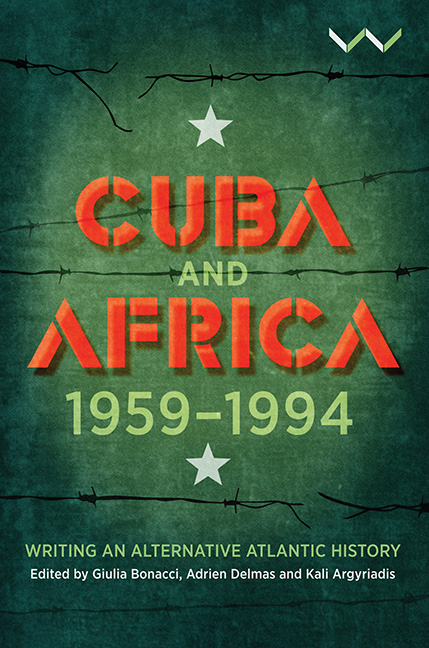Book contents
- Frontmatter
- Contents
- Figures and Table
- Foreword
- Acknowledgements
- Acronyms and Abbreviations
- Timeline of Historical Events
- Map of Africa, 1994
- Introduction Reconfiguring the Cuba–Africa Encounter
- Part I Politics and Solidarity
- Part II Trajectories
- Part III Voices
- Part IV Reconstructing History, Reconnecting Roots
- Contributors
- Index
Chapter 2 - Cuban Policy and African Politics: Congo-Brazzaville and Angola, 1963–1977
Published online by Cambridge University Press: 15 June 2021
- Frontmatter
- Contents
- Figures and Table
- Foreword
- Acknowledgements
- Acronyms and Abbreviations
- Timeline of Historical Events
- Map of Africa, 1994
- Introduction Reconfiguring the Cuba–Africa Encounter
- Part I Politics and Solidarity
- Part II Trajectories
- Part III Voices
- Part IV Reconstructing History, Reconnecting Roots
- Contributors
- Index
Summary
When Fidel Castro came to power in 1959, one of his goals was to develop a new foreign policy based on cooperation and mutual aid in accordance with the principles formulated by the Non-Aligned Movement, which emerged during the Bandung Conference in 1955. Che Guevara, then minister of foreign affairs, was responsible for implementing this Cuban ‘internationalism’ in Africa. In 1964, he travelled around the continent (to Egypt, Algeria, Ghana, Guinea, Mali, Benin and Congo-Brazzaville) to meet several African leaders and set up a network of mutual assistance. Its objectives were to provide military support to liberation movements and to strengthen specific political regimes. Cuban diplomacy was conducted in official agreement with the Organisation of African Unity (OAU), which had also taken a number of measures to support liberation movements since its creation in 1963.
Since the 1960s, the history of Cuban internationalism has been the subject of several books and articles in newspapers (such as Le Monde Diplomatique) and academic journals (such as Présence Africaine and Politique Étrangère). Most authors have written about this topic in the wider context of the historiography of international relations. Firstly, they analysed the Cuban intervention as an episode of the Cold War (intrinsically linked to this external context). They also tended to present it as the result of the Soviet Union's intervention in Africa. Secondly, the majority of authors stressed the extent, sometimes great indeed, of the Cuban military deployment and its considerable impact on the political history of African countries. For example, Edward George highlights the impact of Cuban interventions (such as Operation Carlota) on the political evolution of Angola, as well as their impact on the balance of power during the Cold War. Such studies mainly promoted the view held by the Cuban government, which was omnipresent in those countries’ diplomatic archives, sometimes giving the impression that they were the only actors involved in these operations.
However, recent research illustrates the influence of local contexts and interpersonal relations between African policy frameworks and the Cuban government on the evolution of this internationalism. In her book Cubans in Angola: South–South Cooperation and Transfer of Knowledge (2015), historian Christine Hatzky explains how the decision to massively expand civil cooperation in Angola from 1977 – on top of military cooperation – was connected to the context of the civil war and the need to help the Popular Movement for the Liberation of Angola (MPLA) to consolidate its grasp on the country.
- Type
- Chapter
- Information
- Cuba and Africa, 1959-1994Writing an Alternative Atlantic History, pp. 50 - 67Publisher: Wits University PressPrint publication year: 2020



